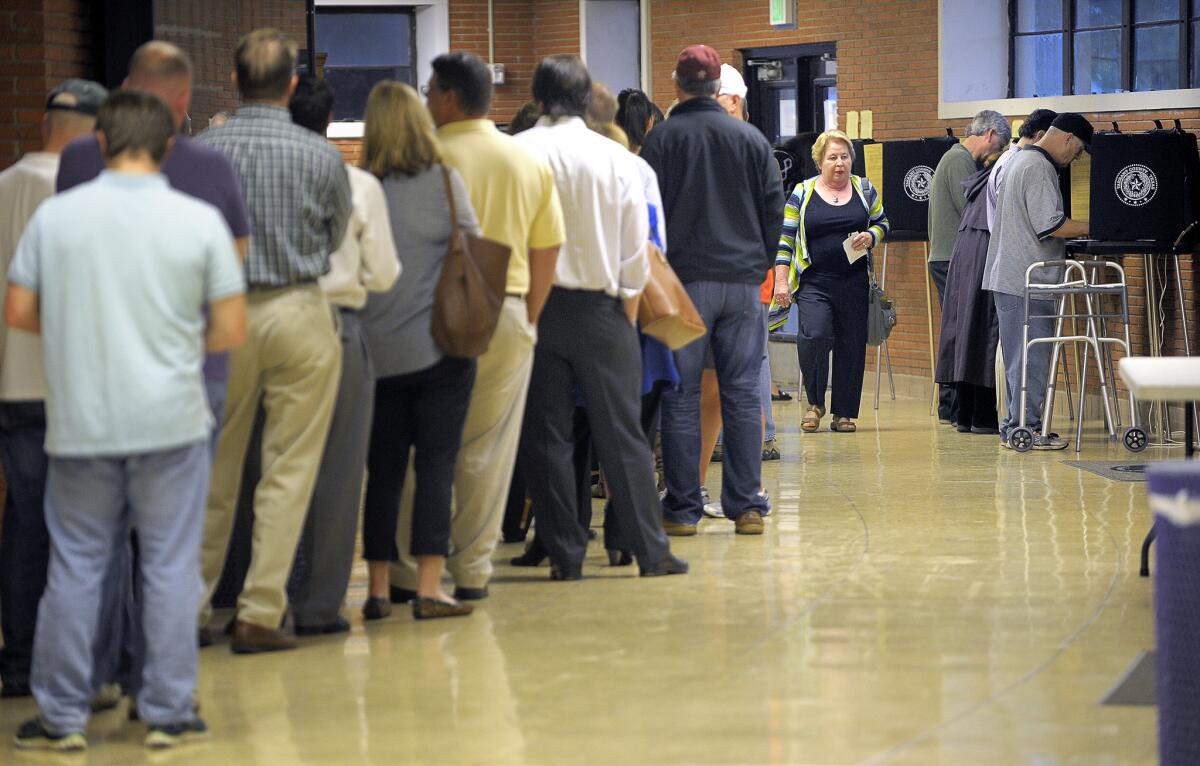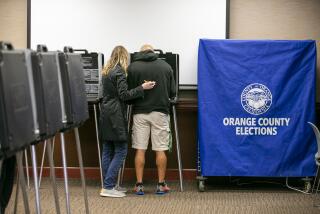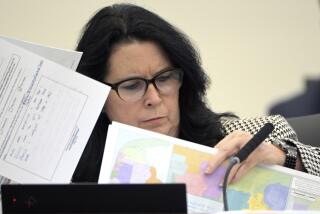Voting monitors report complaints in states with new voter ID laws

Poll monitors and voting rights groups reported thousands of questions and complaints during the early hours of voting in the first major national election since the Supreme Court overturned key aspects of the Voting Rights Act.
The Election Protection Coalition, composed of civil society activists and lawyers, reported receiving more than 14,000 calls to its election day hotline from voters asking for registration information and to report complaints about mistreatment at the polls. That tally, through 5 p.m. EST, was higher than the total number of calls they received during the last midterm election in 2010, the group said.
“Today and for the past several weeks during early voting, we have been witnessing the most unfair, discriminatory and confusing election landscape in almost 50 years,” said Wade Henderson, president of the Leadership Conference on Civil and Human Rights, a member of the coalition.
The most complaints came from Georgia, Florida and Texas, the group said. All three states have some form of voter identification law.
Monitors with the group accused those states of a series of lapses, including misinformed poll workers and the alleged loss of 40,000 names of registered voters in predominantly African American counties in Georgia. The group’s hotline received more than 1,300 calls from that state alone, they said.
Voters in Texas, which implemented a controversial voter identification law this year despite legal challenges, also reported widespread confusion. Military personnel in some parts of the state were allowed to vote with their military identification, while others were not, monitors said.
“Voters are dealing with one of the most restrictive voting laws in the country in Texas,” said Nicole Austin-Hillery of the Brennan Center for Justice, whose group has challenged the law in court.
Many of the coalition’s concerns stem from the 2013 Supreme Court decision to remove the requirement that certain states and regions with a history of discriminatory voting practices, predominantly in the South, seek federal clearance before changing their voting laws.
As a result, the groups said, some states enacted more restrictive voting requirements that might not have passed federal inspection.
“This is the first election in 50 years where voters of color will not have the full protection needed to vote,” said Deborah Vagins of the American Civil Liberties Union.
But states across the country grappled with irregularities, the groups said. Voters with limited English ability face a particular challenge, they said.
In cases in Pennsylvania and in North Carolina, Asian Americans who could not read the ballot in English were not allowed to bring volunteers to translate for them as required by law, and in one case a poll worker told a voter that they had to vote “yes” to all ballot measures.
In Louisville, Ky., a city with a growing Hispanic population, there were reports of poll workers treating Latino voters rudely or failing to help, monitors said.
“As we’ve seen across the country, as Latinos become a growing demographic, we see a backlash,” said Arturo Vargas, whose group administered a Spanish hotline for voters.
Cities in California in which Latino voters reported issues with voter registrations included El Monte, Oceanside, Compton and Palmdale, Vargas said.
Follow Matt at @mtthnsn
More to Read
Get the L.A. Times Politics newsletter
Deeply reported insights into legislation, politics and policy from Sacramento, Washington and beyond. In your inbox three times per week.
You may occasionally receive promotional content from the Los Angeles Times.






